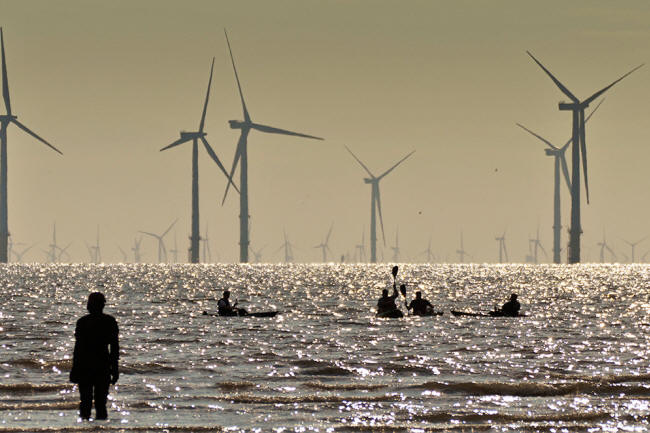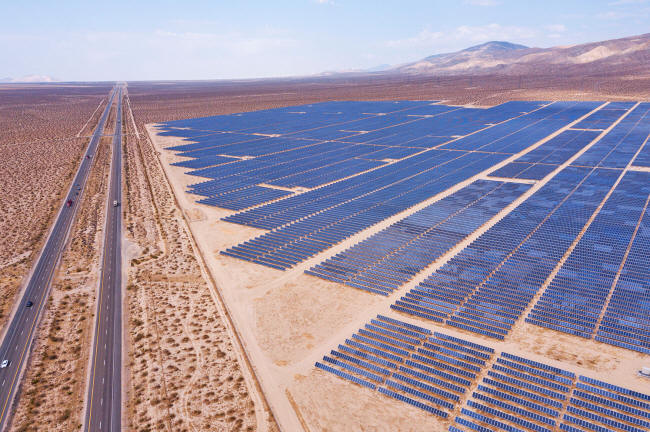|
from TheEpochTimes Website
Also from here near the Burbo Bank Offshore Wind Farm in Liverpool, United Kingdom on Aug. 4, 2021. (Christopher Furlong/Getty Images)
Authored by Mark Mills of the conservative Manhattan Institute, the report comes as the Russia-Ukraine war wreaks havoc on global energy markets, particularly in Europe.
In a Sept. 7 speech, European Commission President Ursula von der Leyen vowed to try to "flatten the curve" of electricity use during peak hours through rationing.
Faced with rising energy prices, some politicians are rethinking their stances on fossil fuels.
Newly elected British Prime Minister Liz Truss will end her country's fracking moratorium on Sept. 8, as reported by The Telegraph.
While noting that electric vehicles, solar panels, and wind turbines have all significantly improved in recent years, Mills highlighted barriers that impede a complete departure from hydrocarbons.
Raw materials pose one fundamental challenge.
Citing a May 2021 analysis from the International Energy Agency (IEA), Mills argued that any sweeping energy transition would require a massive increase in supplies of various minerals.
The supply of lithium, for example, would need to rise 4,200 percent.
Solar panels, part of an electricity generation plant, in Kern County near Mojave, Calif. on June 18, 2021. (Patrick T. Fallon/AFP via Getty Images)
'Very Interesting Winter'
Stephen Haner, a senior fellow with the Thomas Jefferson Institute for Public Policy in Virginia, agrees with Mills' analysis.
He told The Epoch Times in an Aug. 7 interview that the average American may find it hard to track the energy transition issue,
Another expert, Daniel Kish of the American Energy Alliance, told us,
Such comparisons often serve to support the claim that,
He pointed out that the United States' Energy Information Administration distinguishes dispatchable technologies, such as coal and nuclear, from resource-constrained technologies like wind and solar.
Like Mills, he worries the United States could become far more dependent on Chinese minerals and supply chains than it ever was on OPEC oil.
A worker with car batteries at a factory for Xinwangda Electric Vehicle Battery Co. Ltd, which makes lithium batteries for electric cars and other uses, in Nanjing in China's eastern Jiangsu Province, on March 12, 2021. (STR/AFP via Getty Images)
Some Experts More Critical
Other experts contacted were more critical of the report.
Professor Iain MacGill of the University of New South Wales told us in a Sept. 6 email that there was,
He drew attention to the IEA's warning in 2021 that underinvestment in non-fossil fuel energy could prove destabilizing.
Christian Breyer, a professor of solar economy at Finland's Lappeenranta University of Technology, was far harsher.
In a scathing Sept. 7 email, he told us that the report was,
He then cited his own recent scientific review, claiming that it demonstrated the feasibility of an energy transition based primarily on solar, wind, and batteries.
One section covers raw materials, an area where Mills and many others have raised potentially huge shortfalls as a serious issue.
Even Breyer's review notes that,
His proposed solutions?
Kish, of the American Energy Alliance, expressed doubts about such a vision.
|




